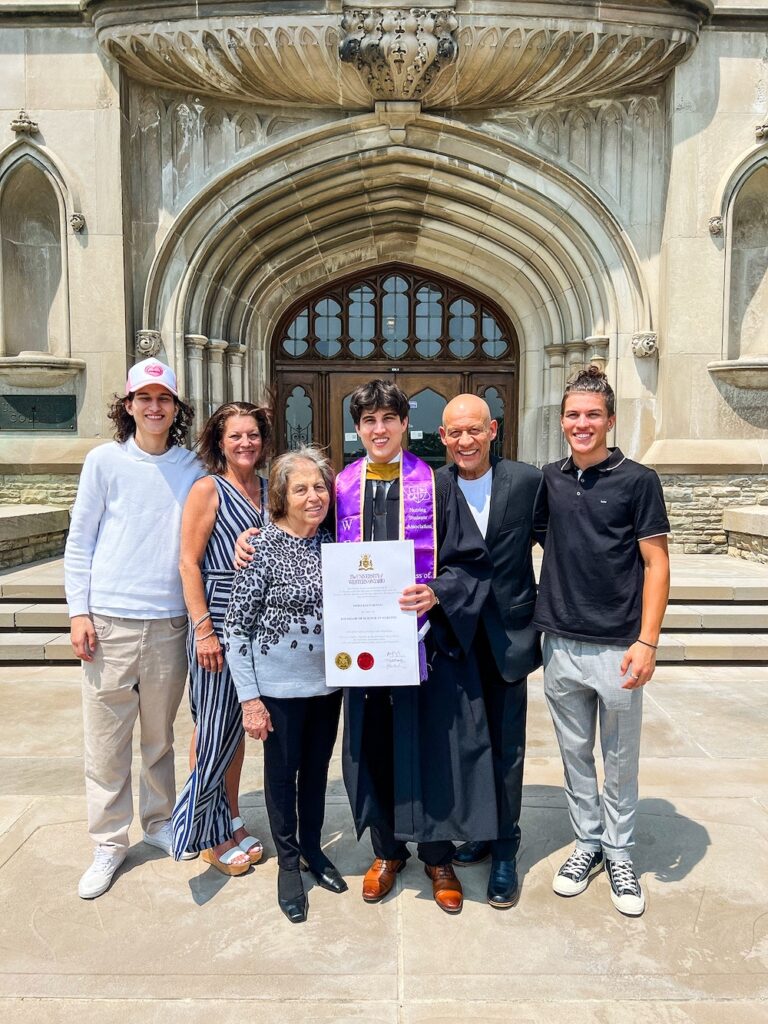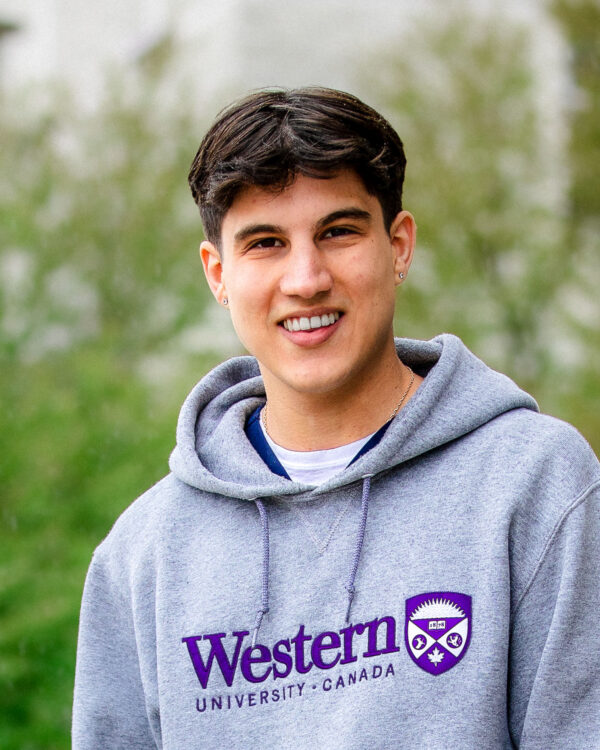Within the first 30 seconds of stepping foot on campus, I felt like I was a part of something. As I walked up the stairs in Saugeen-Maitland Hall and entered my room, 384 Up, I stared with awe. This was the first time in my life when I had my own room, my own bed and my own quiet study space. This room, and this university, were about to change my life.
Before this, I thought I was different and it was this notion that occupied my mind throughout high school.
Every day as I woke up, and every night before I went to bed, I would compare myself to others, wishing I wasn’t different.
Growing up in Markham, Ont., my family’s circumstances were anything but ordinary. With my parents’ combined annual income of less than $40,000, the six people in our family lived in a cramped 700-square-foot apartment. My siblings and I slept on couch cushions and foam mattresses, rolled out each night on the living room floor. Our daily struggles sculpted my outlook on life.
While the kindness of family friends and teachers helped us camouflage our poverty, I lived with the constant fear others might discover how I lived, and who I really was. As I grew older, hiding my circumstances became an exhausting endeavour.


I began to realize my socioeconomic status had caused me to make false, limiting assumptions about my abilities and my future.
My study space throughout high school consisted of a square kitchen table with folded pieces of paper under two of its legs to offset the apartment’s slanted floor. As I tried to do my homework, I could hear my brothers’ constant crying in the background and my parents’ arguments over money.
The loud noise and lack of personal space made it almost impossible to study, and in turn, had a negative impact on my grades.
Dreams of becoming a family physician seemed beyond my reach, a feeling exacerbated by my status as a first-generation student.
But Western offered a ray of light. A haven of learning and personal growth, this university offered an opportunity to break from my past. My productivity soared, and the stability allowed me to explore extracurriculars. I joined student council, teaching and diversity committees, nurturing newfound confidence in my abilities.
Learning about the social determinants of health in my nursing classes shattered my fixed mindset. I began to realize my socioeconomic status had caused me to make false, limiting assumptions about my abilities and my future.
Today, having graduated from the nursing program, in the midst of my graduate degree, and in the process of applying to medical school, I am no longer trying to hide my experience with poverty. Instead, I embrace it, and use it as a way to encourage and advocate for students facing similar challenges.
One thing I learned for certain is that my past does not, and will not, determine my future. Financial hurdles may still persist, but my journey underscores that perseverance and determination can help manage the burden. Poverty should never limit ambition.
